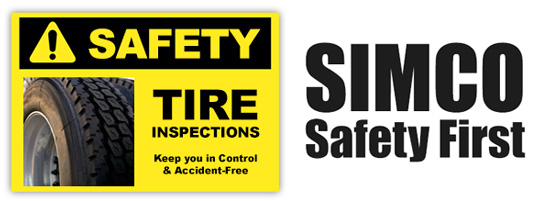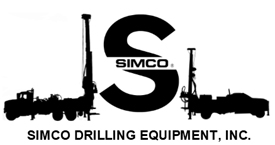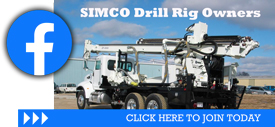You may not think about your tires often, but they are essential to the safe operation of every drill rig and support vehicle in your fleet. Minor damage can quickly transition to a major flaw that leads to an accident. But there are steps you can take to mitigate the risk and keep your drill crew and your drilling equipment safe.

- The number one action is to perform regular inspections. Pre- and post-trip inspections are a Department of Transportation requirement for commercial motor vehicle operators. Stones, small bits of glass, and other foreign objects can work their way into the tire and cause a leak, leading to uneven wear. Enforce careful inspection as part of your crew’s standard process and it will become second nature.
- Accurate inflation pressure can head off a host of tire problems. An over-inflated tire leads to decreased traction and distorts the shape, increasing wear and tear down the center of the tire. When a tire is under-inflated, too much of the tire’s surface is in contact with the road, and that increased friction is what makes it the leading cause of tire failure. You can’t judge pressure by just looking, so it’s important to carry your own accurate pressure gauge.
- Loading your vehicle properly will also lessen uneven wear on your tires. The vehicle suspension capabilities shouldn’t be the first thing to consider. Check the side of the tire to find the maximum load of the vehicle and take the weight of added equipment into account. It’s important to never exceed the maximum tire load.
Faulty tires can be the cause of many vehicle accidents. When you have a blowout in a front tire, controlling the vehicle or even bringing it to a stop can be next to impossible. Train your employees on proper and regular tire inspections to keep them safe on the road and to protect your equipment from wheel well, fender, and vehicle body damage.



